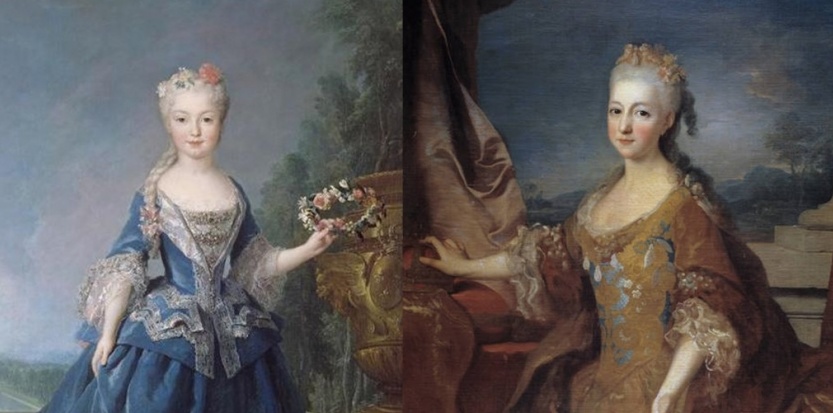The Exchange of Princesses

“No hangover can stand in the way of a good idea” claimed Philip d’Orleans, The Regent of the throne of France, on the morning when he made the decision to marry Louis XV, then eleven years old, to Anna Maria Victoria, the infant heiress of Spain, aged three, and to give the hand of his own daughter, Louise Elisabeth de Montpensier, aged twelve, to the royal heir of Spain, Luis Prince of Asturies, aged fourteen.
His brilliant plan was supposedly aimed to ensure peace between Spain and France. Of course, one can’t help but suspect that the Regent had a hidden agenda, wishing to postpone as long as possible the moment he would have to abandon his power to the benefit of Kng Louis XV by keep him in childhood and without any descendants.
In The Exchange of Princesses — Chantal Thomas, a novelist and academic; director of research at the prestigious National Center for Scientific Research; fascinated by Sade, Diderot, and Rousseau — focuses on the cruel cross-destiny of these children, in a century that would see the birth of the bourgeoisie and its rising interest in childhood.
As you might guess, these arranged mariages won’t end well. Louise Elisabeth de Montpensier, raised in total liberty — and disguised neglect — will never adapted to the prude and fervently catholic Spanish court and will be sent back to her father’s home in a state of half-craziness. Anna Maria Victoria, on the contrary, will seduce the French court, with the noticeable exception of her dark and torn husband, who will cancel the wedding contract and send her home as well.
With panache, elegance, and sharpness, Chantal Thomas tells an extravagant tale, full of the delirium and brutal delusion of these kids reduced to the status of simple pawns on the chessboard of power.
The Exchange of Princesses, a novel by Chantal Thomas, translated from the French by John Cullen, Other Press


